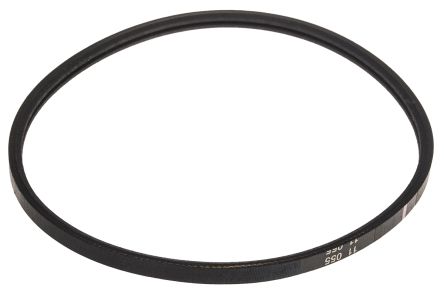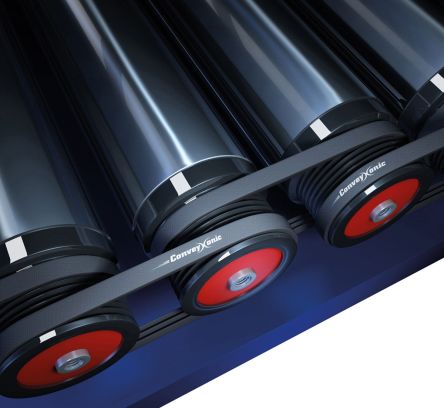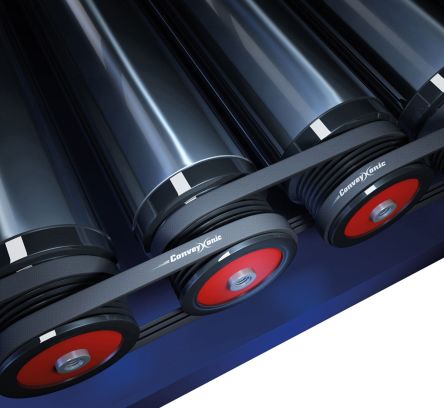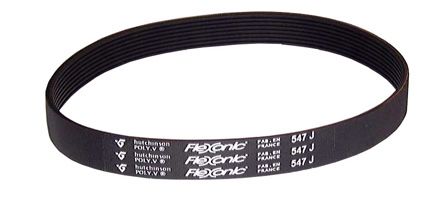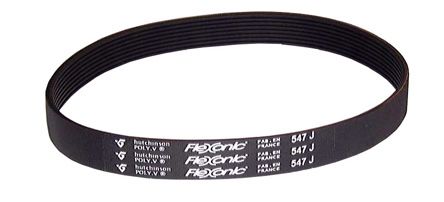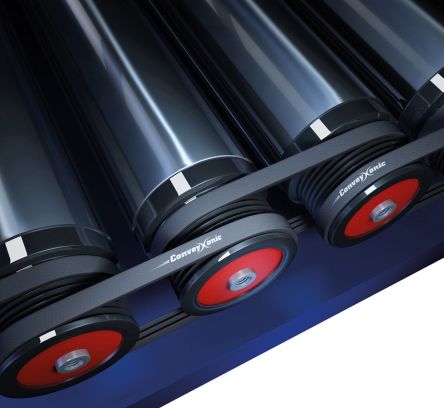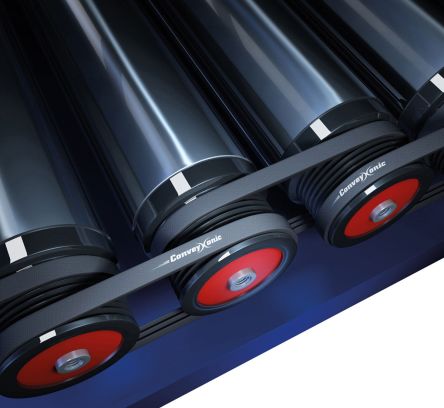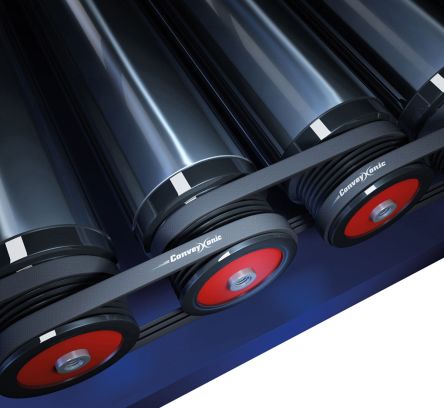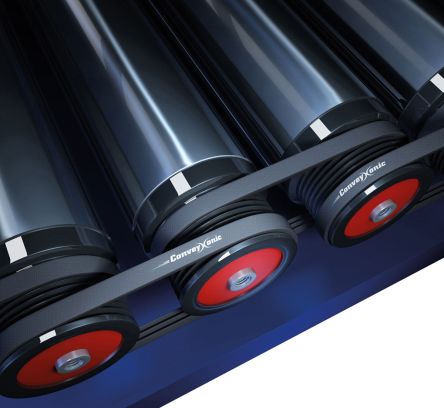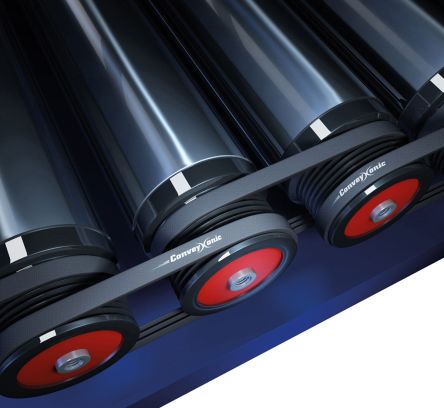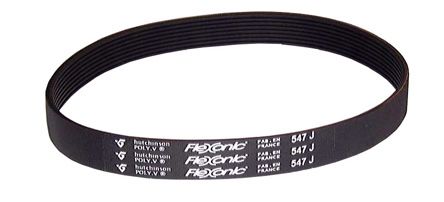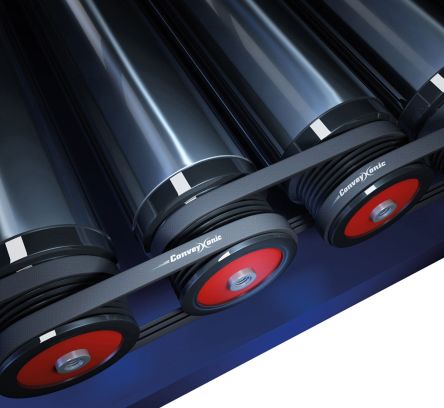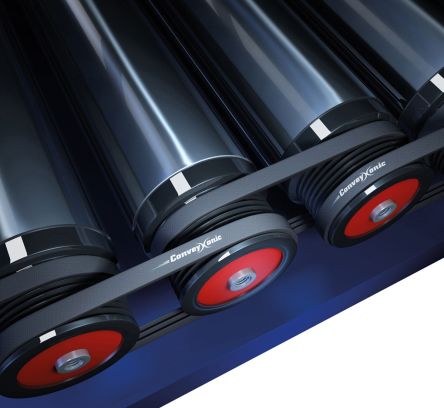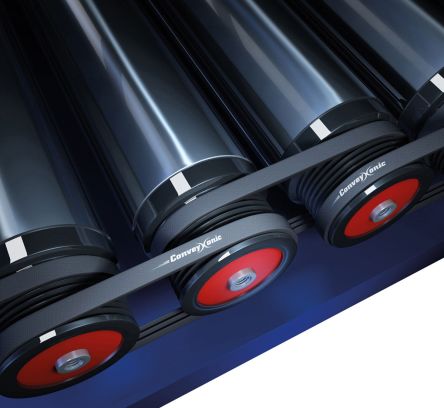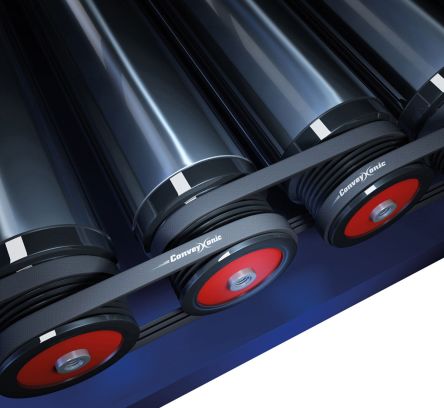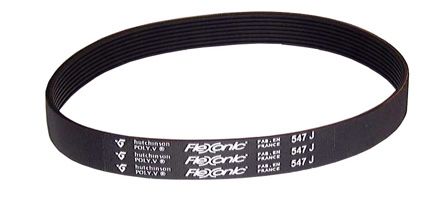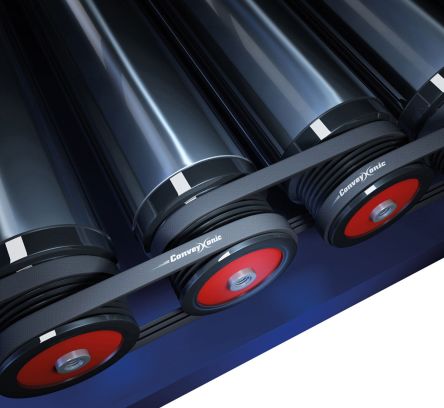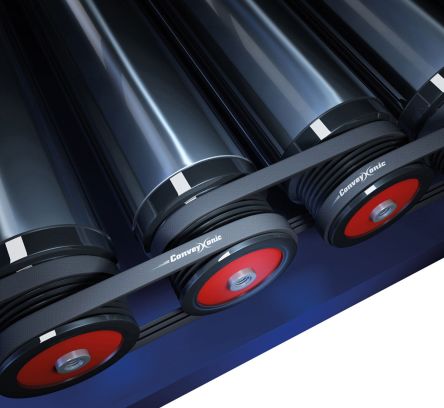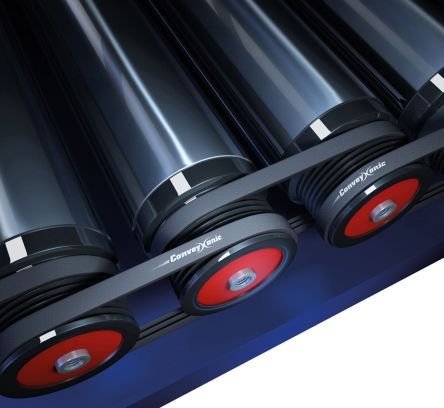- Automation & Control Gear
- Cables & Wires
- Enclosures & Server Racks
- Fuses & Circuit Breakers
- HVAC, Fans & Thermal Management
- Lighting
- Relays & Signal Conditioning
- Switches
- Batteries & Chargers
- Connectors
- Displays & Optoelectronics
- ESD Control, Cleanroom & PCB Prototyping
- Passive Components
- Power Supplies & Transformers
- Raspberry Pi, Arduino, ROCK, STEM Education & Development Tools
- Semiconductors
Hutchinson V & Wedge Belts
A drive belt is a length of synthetic flexible material or rubber, joined to make a loop. Drive belts or V belts are used to join two or more pulleys together. These belts are designed to be fitted to the outer edge of the belt pulley. When tension is applied to the belt it creates friction, thus transferring friction into motion. You can find more information in our drive belts guide.
How to identify the correct drive belt
Identifying the correct size belt for your application is critical. As belts can stretch over time is it all too easy to make a mistake. One way to ensure you make the correct selection is by checking to see if the belt drive still has a manufacturer part number printed on the belt. If this is not possible due to wear, then you need to measure the belt in two very specific ways. A drive belts size is determined by two things, length, and width.
Measuring the length of the V belt
The length of the drive belt or poly v belt is calculated by measuring the inner circumference of the belt. This can be done with either a specialist V belt measuring tool or a cloth tape. Do not try to measure with a steel tape or ruler. Once you have the circumference of the belt make the tape straight giving you the length.
Measuring the width of the V belt
If you look at a belts cross-section a wrapped belt or wedge belt will have trapezoidal shaped teeth along the inner side of the belt. To measure the width simply measure across the top of the vee and the height of the vee. The two measurements relate to the ’section’ size.
Belt Types
Once you have the two measurements the figures can be used to identify the belt 'type'. The width measurement would generally appear as a single letter or three letters x the length. Typical belts would appear like: A Section x Length, B Section x Length, Z Section x Length, XPZ Section x Length, SPZ Section x Length, SPB Section x Length
